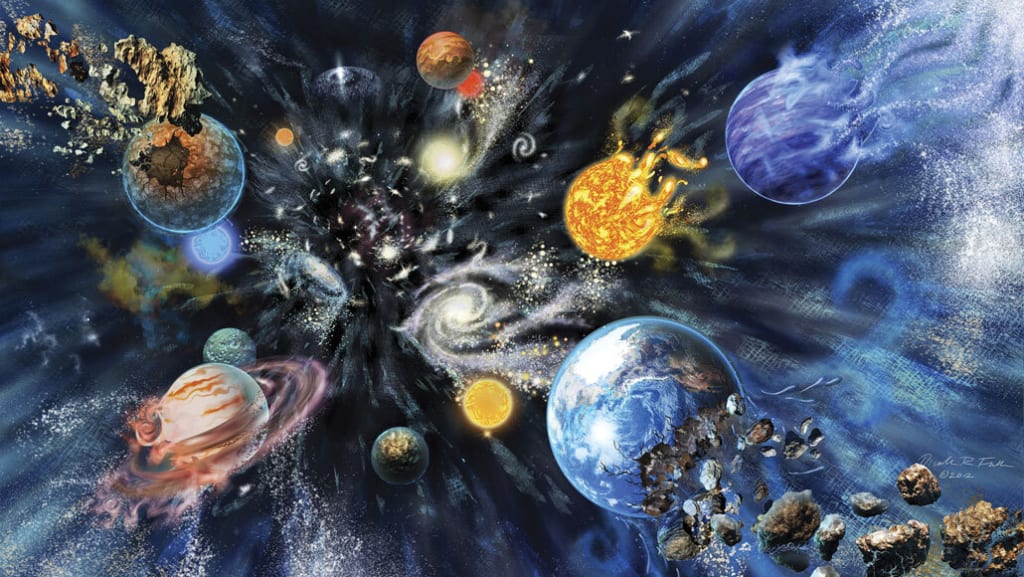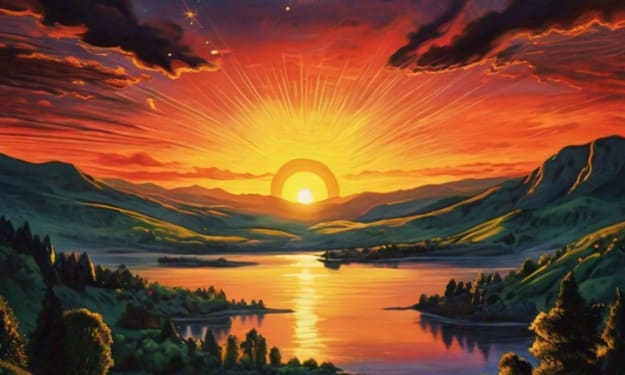The end of the universe is near?
When will the universe end? Ending of the universe based on scientific and religious references.

The question of when the universe will end has fascinated humanity for centuries. Science and religion offer different perspectives on this topic, and both have contributed to our understanding of the possible fates of the universe.
From a scientific perspective, the most widely accepted theory about the eventual fate of the universe is the Big Freeze, also known as the Heat Death. This theory suggests that the universe will continue to expand at an accelerating rate, and eventually, all the stars will burn out, leaving the universe dark and cold. As the stars die out, the universe will become increasingly empty and isolated, and all energy will be evenly distributed, resulting in a state of maximum entropy. At this point, the universe will have reached a state of thermodynamic equilibrium, and no further change or motion will be possible. This is estimated to occur in around 10^100 years.
Another scientific theory, known as the Big Crunch, suggests that the universe will eventually collapse in on itself due to the force of gravity, leading to a massive implosion. This would result in a new Big Bang, and the universe would start over again. However, recent observations of the expansion of the universe suggest that the Big Crunch is unlikely, and the Big Freeze is the more probable outcome.
From a religious perspective, the end of the universe is often associated with the concept of the apocalypse or the end of the world. Many religious traditions predict that there will be a final judgment or reckoning, in which good will triumph over evil, and the righteous will be saved while the wicked will be punished. In Christianity, for example, the Book of Revelation describes a series of cataclysmic events that will occur at the end of time, including the rise of the Antichrist, the return of Jesus Christ, and the final battle between good and evil. Similarly, in Islam, the Quran describes the end of the world as a time of great upheaval and chaos, in which the forces of good and evil will clash in a final battle, resulting in the establishment of a new world order.
In Hinduism, the end of the universe is associated with the concept of pralaya, or dissolution. According to Hindu mythology, the universe goes through cycles of creation, maintenance, and destruction, with each cycle lasting billions of years. When the universe reaches the end of a cycle, it is dissolved into its constituent elements, and a new cycle begins.
In Buddhism, the end of the universe is associated with the concept of kalpa, or aeon. According to Buddhist belief, the universe is in a constant state of flux and change, and will eventually come to an end when all sentient beings have attained enlightenment. At this point, the universe will dissolve into its constituent elements, and a new universe will arise.
Ultimately, the question of when the universe will end remains a matter of debate and speculation. While scientific theories suggest that the universe will eventually reach a state of maximum entropy, religious traditions predict a final judgment and the establishment of a new world order. Whether the end of the universe is a natural phenomenon or a supernatural event, it is clear that the universe is constantly changing and evolving, and that humanity has a lot to learn about the nature of the cosmos.
In conclusion, the question of when the universe will end is a complex and fascinating topic that has inspired scientists and theologians for centuries. While science and religion offer different perspectives on this question, both provide valuable insights into the possible fates of the universe. Whether the end of the universe will be a slow, gradual process or a sudden, cataclysmic event, it is clear that humanity has much to learn about the nature of the cosmos and our place within it.
About the Creator
Sujan Paudel
I love to write. And in a hunt for a platform to express my feelings, I have arrived in Vocal Media. Let's see where this journey takes me from here.
Enjoyed the story? Support the Creator.
Subscribe for free to receive all their stories in your feed. You could also pledge your support or give them a one-off tip, letting them know you appreciate their work.






Comments
There are no comments for this story
Be the first to respond and start the conversation.